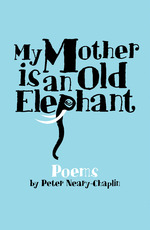Forgiveness and the structure of experience
 Tuesday, February 24, 2009 at 9:39AM
Tuesday, February 24, 2009 at 9:39AM I have recently spent some time reading essays written by practising psychotherapists who are both Christians and practitioners of Neuro-Linguistic Programming (NLP) - what a heady mix! I was very interested in what they had to say about the connection between NLP and spiritual principles, and happily, they reach very encouraging conclusions, despite NLP being something of a controversial topic in church circles.
The most helpful statement I read in their deliberations concerned the fact that NLP is only concerned with the structure of our experience, and how that can be modified. It makes absolutely no claims about the reality of the world, or the material validity of any hypothesis about the outside world. To use NLP terminology, it only concerns itself with the map, not the territory, with the menu, not the meal. It aims to inform our own internal representations of reality. In short, it does not make any claims about external truth, only about internal truth, about what we believe to be true.
So, on that basis, you can take an NLP view of, for example, what Jesus said when he began his ministry. Some of the first words out of his mouth were "repent" (ie, change your mindset, and consequent behaviours), "the kingdom of heaven is at hand" (ie, there is a whole new way of looking at the world, a massive reframing exercise), and "your sins are forgiven" (ie, God isn't what you've always been led to believe).
This is very cheerful stuff, looked at in a certain way (reframing again). You don't even need to get into any great theology debate over it, because at this point there was no atonement theology - Jesus hadn't died yet, but he announced the forgiveness of sin. Pretty neat, isn't it?
If you've been brought up to believe that there is sin in the world, then it's a fantastically empowering thing to know that there is forgiveness too. It becomes a choice that people can make on a daily, an hourly basis. I think many religious people don't have a real-world model of forgiveness, only of right behaviour. Rather than enjoying forgiveness, they spend lots of energy making sure they have nothing to be forgiven for. How exhausting!
So, building new structures of experience for ourselves using meditation and visualisation techniques (all of which are quite Biblical, by the way) seems to be powerfully edifying, and using the absolute model of truth, mercy, love and compassion that Christians see in Jesus seems to be a highly empowering way of believing.
So, while I don't do theology, I do see the greatest beauty in many of the Christian stories, and people of a more sceptical bent will do well not to throw out the baby with the bathwater.


Reader Comments